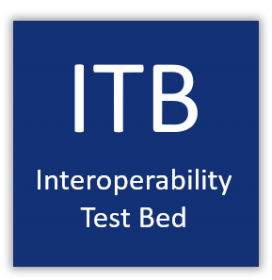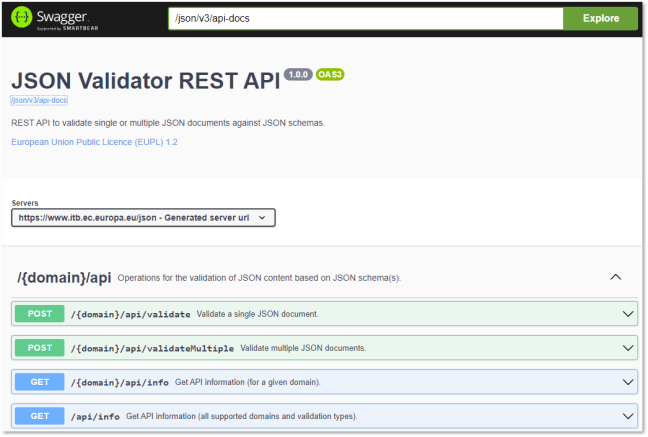

A set of new features is now available for the Test Bed’s RDF, XML, JSON and CSV validators, for which a new milestone release (1.3.0) is now published.

Release 1.3.0 is now the latest available milestone release for the Test Bed’s RDF, XML, JSON and CSV validators. Milestone releases complement the validators’ continuous delivery model that provide rapid access to latest changes, by offering stable versions for users hosting validators on their own infrastructure. The latest milestone release bundles several new features that have been incrementally made available in the previous weeks. The main ones of these are summarised below.
All validators now support a new REST API that offers an alternative to the existing SOAP API for machine-to-machine integration. The new REST API supports the validation of single documents and also validation in batch, providing as well operations to discover supported validation options. Validation reports are returned in the GITB Test Reporting Language (TRL) in either XML or JSON formats. It is interesting to note that the Test Bed’s RDF validator already offered a REST API with such operations, but these have now been extended to offer GITB TRL reports as an alternative to SHACL validation reports.
To facilitate use of their REST API, all validators define rich interactive documentation via the popular Swagger UI (see for XML, JSON, RDF and CSV) which can also be retrieved in the standard OpenAPI format. Through this documentation, users may discover the available operations but also directly execute them.

Apart from this live documentation, all validator guides have been extended with new sections to cover all aspects of the new APIs, addressing each operation, its inputs and its report options (see for XML, JSON, RDF and CSV).

The new REST API is by default available for all validator instances without any additional configuration. A validator’s configuration may nonetheless always be adapted to restrict the APIs that are made available to users.
All validators’ configuration properties have now been extended with additional options to further customise their use. Specifically:
In the case of the RDF validator, this feature goes further given the possibility of SHACL shapes to import other remote shapes. Validator instances can be configured to handle import errors in a similar manner but also to avoid certain problematic imports altogether that may be out of the control of the validator’s owner.
JSON validators can now better organise complex JSON Schemas by sharing and reusing schema definitions. The JSON Schema specification foresees the reuse of partial schemas within single schema documents but leaves the handling of remote schema references to specific validator implementations. The Test Bed’s JSON validator now allows partial schema definitions to be loaded from remote sources, but also locally, as relative references to other schemas present in a validator’s configuration. This support is further extended by even allowing referring to specific type definitions within referenced schemas.
Support for such partial schema references, both remote and local, allow specification authors to greatly simplify their schema definitions, favouring the sharing and reuse of schemas.
The table below provides the relevant reference links for each validator. For the detailed list of updates introduced by the latest release check the change history links.
| Validator | Docker Hub image | Documentation links |
|---|---|---|
| RDF validator | isaitb/shacl-validator | RDF validation guide | Change history |
| XML validator | isaitb/xml-validator | XML validation guide | Change history |
| JSON validator | isaitb/json-validator | JSON validation guide | Change history |
| CSV validator | isaitb/csv-validator | CSV validation guide | Change history |
Remember that you can automatically receive updates for new milestone releases by either subscribing to the Test Bed community and configuring your notification preferences, or by subscribing to the validators’ GitHub repositories.
General details on the Test Bed itself can be found in its Joinup space with its value proposition being a good starting point for newcomers. If you are interested in receiving the Test Bed’s news, apart from subscribing to notifications, you may also follow the Interoperable Europe’s social media channels (Twitter, LinkedIn) for updates on the Test Bed and other interoperability solutions.